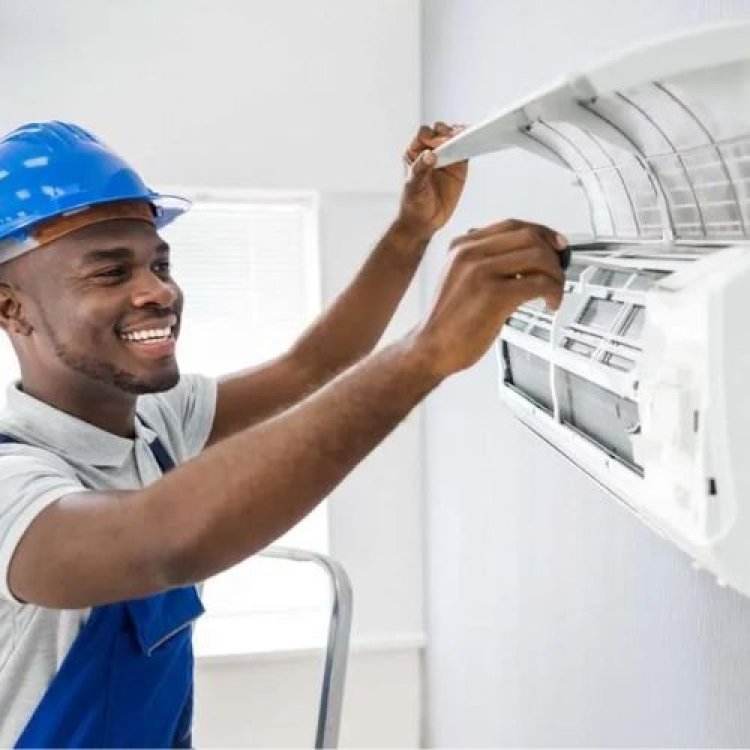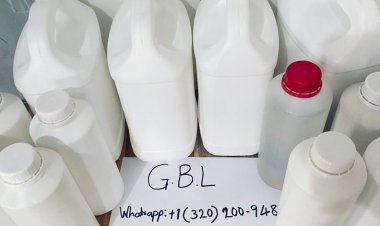10 Reasons Your Air Conditioner Isn’t Cooling Properly
Struggling with an air conditioner that just won’t cool? Uncover the 10 most common reasons your AC isn't performing at its best. From dirty filters to refrigerant leaks, this guide provides essential tips to help you diagnose and fix cooling issues for a comfortable home.
Share this Post to earn Money ( Upto ₹100 per 1000 Views )

When the summer heat strikes, a properly functioning air conditioner is essential for maintaining comfort indoors. However, many homeowners find themselves frustrated when their air conditioning units fail to cool effectively. Understanding the reasons behind this common issue can help you troubleshoot problems and restore a comfortable environment. Whether it's a simple maintenance oversight or a more complex mechanical failure, pinpointing the root cause is the first step toward resolution.
Several factors can lead to an air conditioner not cooling as it should. Issues can range from thermostat malfunctions and refrigerant leaks to clogged filters and dirty coils. Each of these problems can significantly impact the system's ability to cool your home effectively. By familiarizing yourself with these potential issues, you can take proactive measures to keep your air conditioner running efficiently, ultimately ensuring a cooler, more comfortable space during the hottest months of the year.
Here are some reasons your air conditioner isn’t cooling properly.
1. Thermostat Issues
One of the first things to check when your air conditioner isn't cooling is the thermostat. If the thermostat is faulty, it may fail to regulate the temperature or signal the air conditioner to start the compressor. This can lead to a situation where the air conditioner runs but doesn't cool your home effectively. Additionally, the thermostat might be set to the wrong season or have been accidentally changed by someone in your household. Ensure that your thermostat is functioning properly and set to "cool" at the desired temperature.
2. Refrigerator Leak
Refrigerating is essential for the cooling process in air conditioners. A refrigerant leak can prevent your system from cooling properly, even if the unit is still running. Signs of a refrigerant leak include hissing or bubbling noise near the unit and ice buildup on the coils. If you suspect a refrigerant leak, it's crucial to contact a professional technician who can identify the source of the leak and recharge the system with the appropriate amount of refrigerant.
3. Clogged Air Filter
A clogged air filter is one of the most common reasons for inadequate cooling in an air conditioning system. Over time, dust, dirt, and other pollutants accumulate in the air filter, restricting airflow. When airflow is limited, the air conditioner struggles to cool the air effectively, leading to increased energy consumption and wear on the unit. Regularly changing or cleaning your air filter—typically every one to three months—can significantly improve your air conditioner's performance and extend its lifespan.
4. Dirty Coils
The evaporator and condenser coils in your air conditioning system play a vital role in heat exchange. If the evaporator coil is dirty, it cannot absorb heat from the air in your home as efficiently as a clean coil. This can lead to inadequate cooling and increased energy bills. Cleaning the coils regularly helps maintain efficient heat transfer and ensures that your system operates optimally. It's advisable to have a professional technician perform thorough coil cleaning as part of your annual maintenance.
5. Frozen Evaporator Coil
Another issue that can affect cooling performance is a frozen evaporator coil. When airflow is restricted due to dirt buildup or closed vents, the refrigerant can freeze, obstructing the cooling process. A frozen coil can lead to a complete breakdown of the air conditioning system if not addressed. If you notice reduced airflow or ice formation on the evaporator coil, it's essential to turn off the unit and contact a technician to inspect and resolve the underlying issue.
6. Faulty Compressor
The compressor is the heart of your air conditioning system, responsible for circulating refrigerant throughout the unit. If the compressor is faulty, the system may run but fail to cool effectively. Common symptoms of a malfunctioning compressor include strange noises, an unusual smell, or the unit cycling on and off frequently. If you suspect compressor issues, consult a professional technician for diagnosis and repair, as this component is complex and requires specialized knowledge.
7. Outdoor Unit Problems
The outdoor unit of your air conditioning system is crucial for heat exchange. Leaves, sticks, and other debris can accumulate on the unit, obstructing airflow and hindering the cooling process. If the outdoor unit is blocked, it cannot dissipate heat efficiently, resulting in poor performance. Regularly inspect and clean the outdoor unit, ensuring there’s at least two feet of clearance around it to allow for proper airflow.
8. Leaky Ductwork
Leaky ductwork can significantly impact your air conditioning system’s efficiency. If air is escaping through holes or cracks in the ducts, the cooled air won't reach its intended destination, causing hot spots in your home. Additionally, this can lead to increased energy consumption as your system works harder to maintain the desired temperature. Consider having a professional conduct a duct inspection and seal any leaks to improve your air conditioner’s performance.
9. Wrongly Sized Unit
An air conditioner that is improperly sized for your home can lead to inadequate cooling. If the unit is too small, it won't be able to cool the space effectively, while an oversized unit may cycle on and off too frequently, leading to temperature fluctuations and higher energy bills. It's essential to have your air conditioning system properly sized by a professional technician to ensure optimal performance and efficiency.
10. Old Unit
Lastly, the age of your air conditioning unit can play a significant role in its cooling performance. Older units may struggle to maintain efficiency and effectiveness due to wear and tear over the years. If your air conditioner is over 10–15 years old and frequently requires repairs, it may be time to consider replacing it with a more energy-efficient model. Modern units offer improved technology, better energy efficiency, and enhanced cooling capabilities.
Conclusion
Addressing the reasons why your air conditioner isn’t cooling properly is essential for maintaining a comfortable home environment. Regular maintenance and prompt repairs can significantly improve your system's efficiency and longevity. By keeping an eye on common issues such as thermostat settings, refrigerant levels, and the condition of the AC air filter, you can prevent minor problems from escalating into costly repairs. Remember to replace or clean your AC air filter regularly to ensure optimal airflow and cooling performance.
If you do encounter more significant issues that require replacement parts, numerous AC spare parts shops in Dubai offer a wide selection of AC parts in UAE. These shops provide everything from compressors to coils, ensuring you can find the components necessary for repairs. By staying proactive with maintenance and knowing where to source quality parts, you can enjoy a consistently cool home throughout the sweltering summer months.
















